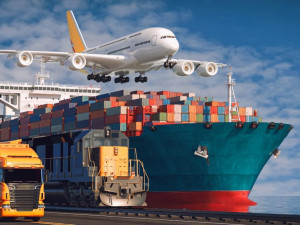
Can banks go bankrupt?
When asked “can banks go bankrupt?” The answer is yes, of course. However, for a shipper of goods holding a letter of credit in his favour issued by a bank overseas, any protection from a payment problem should start long before any issue comes up.
In theory, there should be no problem if the bank issuing the letter of credit goes under, since in most cases, the L/C will have been confirmed by a bank in your home country. The confirmation guarantees payment by a bank, ensuring you won’t have a payment issue.
An exporter who is selling to a renowned “problem country” or even selling to a country considered “safe”, for the first time, should insist on the letter of credit he receives being confirmed. In the latter case it is to ensure that payments are made on time and the new counterparty is sufficiently efficient and professional to become a long-term partner for your business.

How can I ensure that my letter of credit holds up?
A confirmation means that a bank assumes the risk of the issuing bank. This is done for a fee which you will be expected to pay, but it ensures that you will be paid irrespective of the solvency of the bank issuing the L/C. The confirmation is most often added by a bank in your own country
Bank failures are not as commonplace as is generally imagined since risk management, particularly within the commercial banking community, has been improved by better compliance methods and greater surveillance by the various regulators.
An issue like the near bank failures in the aftermath of the 2008 financial crisis that reverberated through even the developed markets has led to commercial businesses tightening up their own credit checking procedures and they are more aware of market risk rather than simple reliance on a letter of credit.
The reliance on the confirming bank is sensible but certain issues can still occur. For example, it is not usual for the beneficiary to require confirmation if the confirming bank is a branch of the issuing bank. That is because, in most cases, it would be a waste of the confirmation fee. The reason being that if the originating bank crashed, their branch would also most likely become insolvent.

What if I receive a letter of credit from a bank in a country that concerns me?
Well, taking the UK as an example, the branch would be under the control of the bank of England and while its operation would not be guaranteed, the Bank would be aware in advance of any issues pertaining to its fulfillment of its liabilities. However, in countries where the risk is political rather than financial, a branch may simply be closed due to sanctions or a similar restriction being imposed. In this case, you will have to contact your Foreign Ministry to understand the full position and perhaps bypass the confirming bank. It would be unwise to deliver any documents that release the title to the goods until payment is assured.
While it is a commercial necessity to expand an exporting business to as many markets as possible, payment delays and, in extreme cases, failure, can cause a business untold financial concerns of their own. There are various insurance schemes, some of which that are Government backed, that cover exporters and while cherry picking, where you only insure the most at risk cargoes is prohibited, the premiums paid often pay off in terms of peace of mind as well as financially.
In the rare occasion that a bank goes bankrupt, all is not lost. However, the recovery of either the goods or the payment can be a time consuming and occasionally futile exercise. As in many cases prevention is better that the cure, so due diligence is the watchword when dealing in unknown markets with unknown customers.
Check out CurrencyTransfer.com’s award-winning business foreign exchange platform.

About Alan Hill
Alan has been involved in the FX market for more than 25 years and brings a wealth of experience to his content. His knowledge has been gained while trading through some of the most volatile periods of recent history. His commentary relies on an understanding of past events and how they will affect future market performance.”



